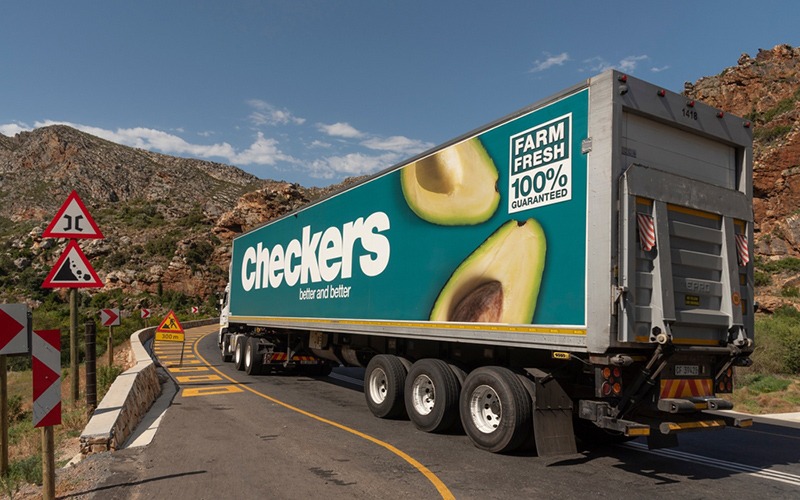The Food and Beverage Industry faces particular hurdles in achieving business expectations for timely and effective deliveries in today’s fast-paced environment. Last Mile Delivery Route Optimization is a critical strategy that has the potential to transform the way firms function. This thorough guide delves into the world of optimizing delivery routes in the Food & Beverage Industry.
What is Last Mile Delivery?
The final leg of the supply chain is where products are carried from a distribution center or hub to the customer’s location. Because of its impact on client satisfaction, it is frequently regarded as the most critical and difficult step of delivery.
Last Mile Delivery Route Optimization: Food & Beverage Industry
Last Mile Delivery Route Optimization is concerned with improving the final leg of a product’s journey – the path from the distribution center to the customer’s location. Optimizing the final mile is critical in the Food & Beverage industry, where freshness and promptness are critical. Businesses may streamline their operations and create an outstanding client experience by employing cutting-edge technology, data analytics, and new methods.
Food & Beverage Industry: Impact of Optimized Routes
Route optimization has a big impact on many aspects of the Food & Beverage business. Companies can improve customer satisfaction while simultaneously lowering operational expenses by cutting delivery times and unnecessary detours. Delivery vehicles can avoid congested locations, traffic jams, and other delays via optimized routes, resulting in enhanced efficiency and resource usage.
Strategies for Last Mile Optimization
1. Utilizing GPS Tracking and Data Analytics
Companies may monitor and analyze delivery routes in real time by implementing real-time visibility and data analytics. This enables businesses to make informed decisions, react to changing situations, and provide customers with precise delivery ETAs.
2. Dynamic Routing Algorithms
Dynamic routing algorithms consider a variety of parameters, including traffic patterns, weather conditions, and order volume. Companies may ensure on-time deliveries even in the face of unanticipated hurdles by dynamically modifying routes on the fly.
3. Geo-Fencing and Proximity-Based Delivery
Businesses can use geo-fencing to create virtual geographic borders, allowing them to send notifications to customers when delivery vehicles approach. This level of communication improves transparency and anticipates client needs, resulting in a great experience.
4. Collaboration with Third-Party Logistics Providers
Collaboration with third-party logistics companies can provide access to their knowledge and resources. This collaboration can assist optimize routes, utilize economies of scale, and ensure seamless end-to-end delivery processes.
5. Integration of AI and Machine Learning
Integrating AI and machine learning technologies allows for the examination of past data to find patterns and optimize routes accordingly. These technologies adapt and improve over time, helping ongoing optimization.
6. Eco-Friendly Initiatives
Optimization isn’t only about speed and efficiency; it can also include environmental sustainability. Companies can connect their operations with eco-conscious goals by creating routes that minimize carbon emissions and fuel use.
Food & Beverage Industry: Importance of Last Mile Delivery Route Optimization
Efficient last mile delivery is a significant distinction for businesses looking to thrive in a competitive market. It’s not just about delivering items from point A to point B; it’s about doing so quickly and smoothly. Businesses can cut delivery times, operational costs, and customer happiness by implementing effective route optimization procedures.
1. Enhanced Customer Experience
In the Food & Beverage industry, delivering items on time is connected with providing a satisfying experience. Companies that use route optimization software can provide precise delivery predictions and real-time tracking to their clients, this transparency fosters trust and loyalty.
2. Reduced Costs and Increased Efficiency
Route optimization has a significant impact on a company’s bottom line in addition to improving businesses. Businesses may drastically cut fuel consumption, vehicle wear and tear, and labor costs by determining the most efficient routes. This results in increased operational efficiency and profitability.
3. Data-Driven Decision Making
One of the major benefits of route optimization is that it is data-driven. Businesses can gain significant insights from delivery data, which can help them detect trends, peak delivery periods, and high-demand locations. This data enables businesses to make more educated decisions, which leads to better resource allocation and overall performance.
Conclusion:
Last mile delivery for Food & Beverage business is being transformed by route optimization, which provides cost savings, faster deliveries, lower emissions, and an overall improved consumer experience. Businesses can use route optimization software to optimize their delivery procedures, remain competitive, and develop deeper relationships with their consumers.
Investing in technology to maximize last-mile delivery is no longer a luxury in today’s fast-paced and customer-centric corporate climate, but rather a requirement. Adopting route optimization solutions would assist not only the Food & Beverage industry, but will also help to establish a more sustainable and efficient future for the entire logistics sector. So, don’t put it off any longer—take the first step toward last-mile delivery efficiency today and get the benefits for your company!
About nuVizz:
nuVizz plays a pivotal role in transforming last-mile delivery for the Food & Beverage industry. With its advanced route optimization solutions, businesses can enhance efficiency, reduce costs, and ensure timely deliveries. By harnessing real-time data, predictive analytics, and user-friendly interfaces, nuVizz empowers F&B companies to streamline operations and exceed customer expectations. Embracing nuVizz translates to a future where precision meets delivery, driving growth and customer satisfaction in this competitive landscape.




